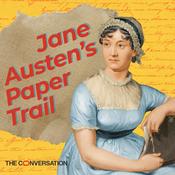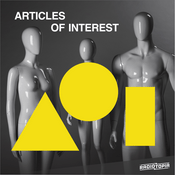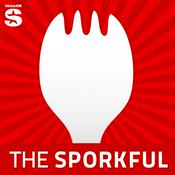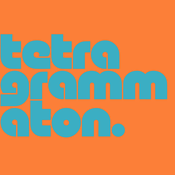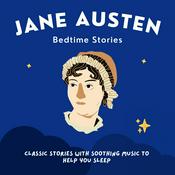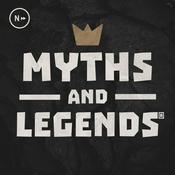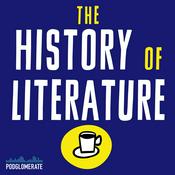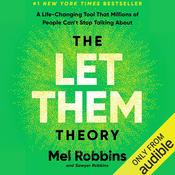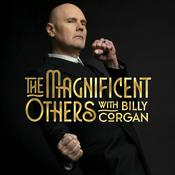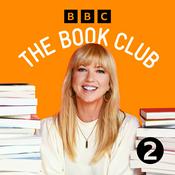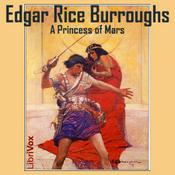144 episodes
- What is “America” not only as a political entity but in our imagination? How can we properly envision America, without repeating clichés that frame America as either reactionary or revolutionary, repressive or liberatory? I spoke with Eyal Peretz about his book American Medium, which looks at Hollywood to re-imagine the concept of "America" through the medium of film. By considering six fundamental American movies: John Ford's Young Mr. Lincoln and The Man Who Shot Liberty Valance, Francis Ford Coppola's The Godfather, Steven Spielberg's West Side Story, and Sofia Coppola's Lost in Translation and Marie Antoinette, Peretz explains how these films do more than represent America and envision a new way to ground human life in our secular age. Eyal Peretz is Professor of Comparative Literature at Indiana University and the author of seminal books on Melville, de Palma, Diderot, da Vinci, as well as film, art, and philosophy.
Learn more about your ad choices. Visit megaphone.fm/adchoices - The speech debates have not abated, and it’s clear that invoking the First Amendment, and the importance of free speech for democracy, does not settle these debates but provokes more questions. We have lost our way, it seems, since people on all sides invoke free speech and then try to silence those they disagree with. Historian Fara Dabhoiwala of Princeton University reminds us that free speech has always been contested, and that it became a political and social value only recently. We invited him to discuss his new book What Is Free Speech?: The History of a Dangerous Idea.
Dabhoiwala examines how free speech started as a risky and radical concept, and how it evolved through centuries of political battles to become central to democracy only at a certain point in history. As Professor Dabhoiwala explains, speech rights have come and gone long before campus protests, debates over what talk show hosts can say, and whether there ought to be limits to speech that’s defined as dangerous, offensive, or unpatriotic. If we hope to find a way out of our current predicament, we should study this history carefully – with Professor Dahhoiwala as the perfect guide.
Learn more about your ad choices. Visit megaphone.fm/adchoices - Step into the unsettling world of E.T.A. Hoffmann with translator Peter Wortsman to explore “The Sandman”—a tale that haunted Freud enough to spark his famous psychoanalytic analysis of “The Uncanny,” examining familiar things that unsettle and disturb us for no clear reason. What makes this bizarre story so deeply disturbing, even today? And how does Hoffmann’s genius, in all of his writing, continue to shape the way we think about the unfamiliar, and the blurry line between human and machine? Our guest for this show is New York-born Peter Wortsman, a renowned translator of Kafka, Kleist, Musil and others, playwright, and author, whose travel memoir Ghost Dance in Berlin won the Independent Publishers Book Award.
Learn more about your ad choices. Visit megaphone.fm/adchoices - Listen to Ori Gersht speak about his novel Ham’s Heaven (Warbler Press, 2025). Inspired by the true story of the first great ape in space, it explores the friendship of an ape and his trainer to examine what we do with animals in the name of progress. Drawing on careful research and echoing the existential questions of Kafka’s “Report to an Academy,” Ham’s Heaven takes us on a journey that is as thrilling as deeply moving—a testament to the bonds that define us, and the progress that so often divides us.
Learn more about your ad choices. Visit megaphone.fm/adchoices Book Talk 67 : The Knowledge Machine: How Irrationality Created Modern Science
29/7/2025 | 1h 7 mins.What is reliable knowledge? Listen to philosopher Michael Strevens, author of The Knowledge Machine: How Irrationality Created Modern Science, to understand how science discovers the truth. At the current moment, when expertise is under attack and the idea of truth is contested from all sides, Strevens explains the remarkable success of science’s “irrational” method to settle debates, regardless of philosophical, religious, or aesthetic preferences. Drawing on Thomas Kuhn’s The Structure of Scientific Revolutions—our host Uli Baer’s all-time favorite non-fiction book—, Karl Popper, and others, Strevens shows how science became the most effective tool for uncovering the secrets of nature.
Learn more about your ad choices. Visit megaphone.fm/adchoices
More Arts podcasts
Trending Arts podcasts
About Think About It
Think About It engages today's leading thinkers in conversations about powerful ideas and how language can change the world.
Podcast websiteListen to Think About It, ill-advised by Bill Nighy and many other podcasts from around the world with the radio.net app

Get the free radio.net app
- Stations and podcasts to bookmark
- Stream via Wi-Fi or Bluetooth
- Supports Carplay & Android Auto
- Many other app features
Get the free radio.net app
- Stations and podcasts to bookmark
- Stream via Wi-Fi or Bluetooth
- Supports Carplay & Android Auto
- Many other app features


Think About It
Scan code,
download the app,
start listening.
download the app,
start listening.





